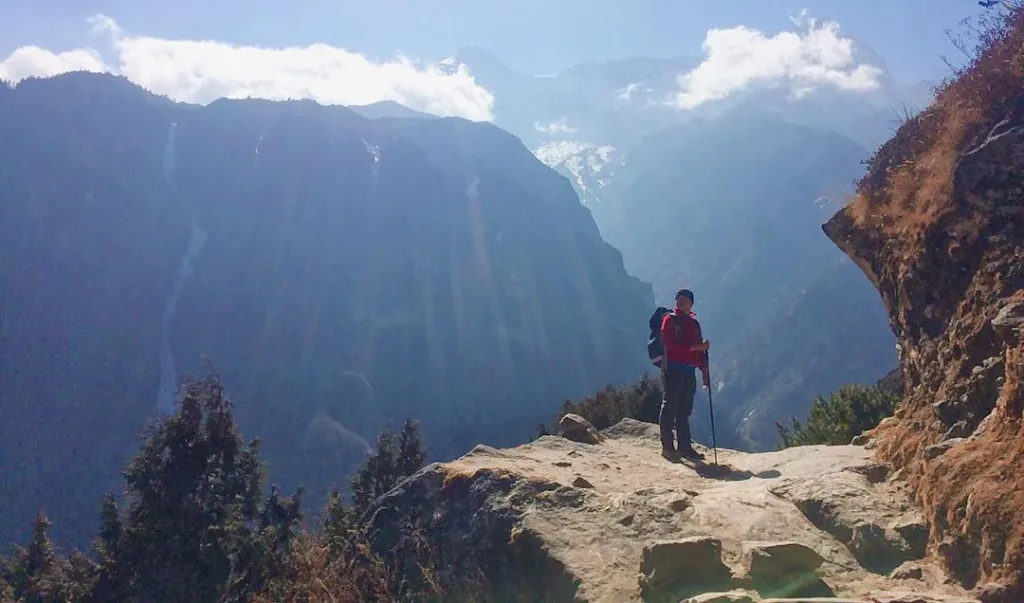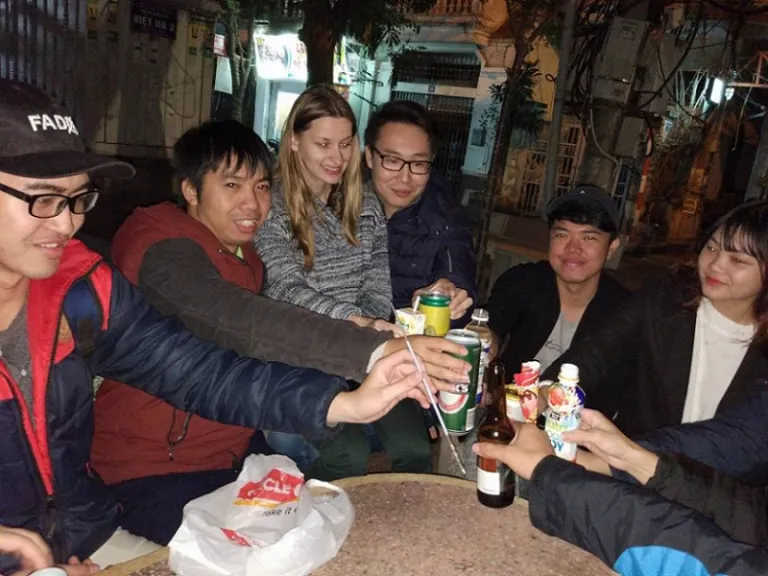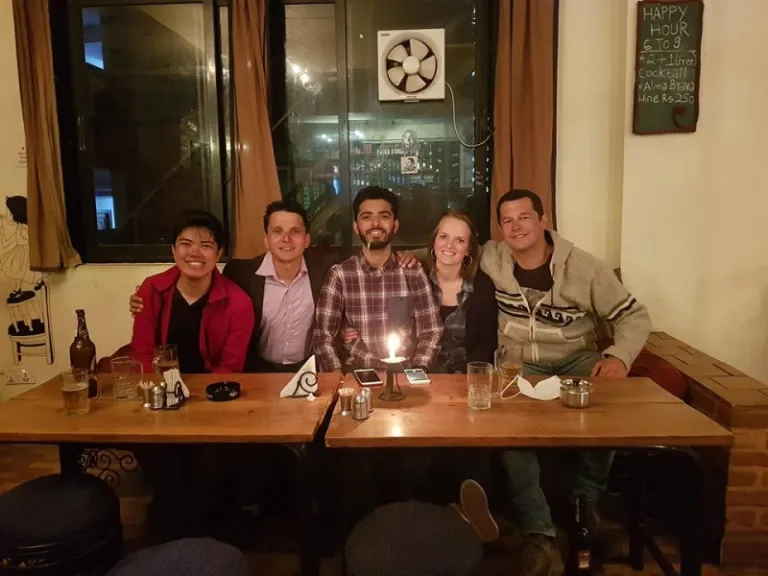Our favourite places to stay on this sleepy Cebu island.
Travel Accidents: Lessons from My Near-Death Experiences on the Road

A couple drowning in the Maldives, a Couchsurfer being murdered at a local home in Nepal, a sightseer falling to his death at the Grand Canyon in the US, and so forth. The fatal dangers of travel are real and they can happen to anyone. In my case, it happened twice in less than two years. While neither got me killed, both continue to haunt me to this day.
Electrocuted in Vietnam
The first one happened in December 2016. I was on a solo extended trip in Vietnam, where I explored 10 different provinces and cities on a three-month tourist visa. By my last couple of days in the country, I decided to stay at a local friend’s old home in Hanoi. It was abandoned for about two months and already had faulty piping, which we hadn’t suspected at the time. Long story short, I got electrocuted by a malfunctioning shower hose while preparing to take a bath. I was unconscious for about two minutes before my friend successfully revived me through CPR.
Stranded in Everest
Fast forward to March 2018, I found myself in the South Asian country of Nepal, alone once more. For this trip, I had planned on doing the Everest Base Camp Trek for nearly two weeks. Because it was already the end of winter in Nepal, I insisted on bringing only a few clothes. When we got closer to Everest Base Camp, I experienced mild altitude sickness. My companions had to leave me in a teahouse to rest while they finished the trek. With my headache and the constantly dropping mountain temperature, I thought it would be the end for me. What made it worse, I had to wait until the next day before I could get evacuated.
Also read: How I Learned To Be a More Responsible Traveller the Hard Way in Russia
One was completely unforeseen, while the other could have definitely been avoided through better planning. Nonetheless, both fatal taught me a few things about travelling and life as a whole that I think most travellers, experienced or beginner, fail to talk about.
If you can avoid something, do it
“Life begins at the end of your comfort zone”, American author and actor Neale Donald Walsch said. While these words are indeed encouraging, they’re also lethal to anyone with an insurmountable thirst for adventure. It’s true, the world offers endless travel experiences anyone of us has the right to fulfil. But, just know that you also have the right to ask yourself the following questions before deciding to do something: Is this experience even doable for you? Can’t you honestly go on with your life without fulfilling it? Is it something worth risking your life for?

Local connections are your salvation
As much as I enjoy travelling solo, I learned it’s still the connections I make on the road that make a difference to my trips. In both Nepal and Vietnam, I’m thankful to have established relationships with locals who were there for me when I needed them. I remember my Vietnamese friends even arranging a group visit to me at the hospital and at my new place in Hanoi after my little incident in the shower. In no time, I got my spirit back with their support. Furthermore, if not for my friend’s father talking to the hospital staff, we would’ve ended up paying hundreds and hundreds of dollars for my hospital bill!
Travel insurance is a must
I didn’t have this in Vietnam, but I was so happy I did in Nepal. Trekking to Everest Base Camp is no joke, yet all I cared to think then was “Seriously, what could happen?”. Well, something did happen. But because of my travel insurance, my travel agent was able to organise a helicopter evacuation that took me from 4,000 metres above sea level back to the city in less than an hour. Otherwise, I would’ve been forced to endure a few more days in the mountains and make my way back to our starting point on foot.
Always check your surroundings
People say that when you’re travelling, all you have to think about is having fun and relaxing. That’s what it’s all about anyway. Here’s what I learned: It’s about our health and safety, too! Spare a few minutes to inspect an accommodation, vehicle or restaurant for anything that might appear questionable. Is your hotel door lock working? Does your food even look clean? Maybe you noticed your driver seemed a little plastered. Would you rather stay on the bus and get going or simply wait and pay to take the next one?
A simple message to a loved one can go a long way
I know, it can get tiring on your part to send a message to your family from time to time. Sometimes, it can even be expensive when you’re in places like the Everest region. Simply connecting to the Internet and charging your mobile phone will cost you up to ₱200 each. But aside from keeping me sane and motivated throughout the trek, it also made it easier for me to notify them of the situation I was in. Therefore, help was easily given.

Don’t be afraid to say you’re not okay
When rushing to fulfil an itinerary, it’s easy to brush off a slight stomach pain, runny nose or even vertigo. “Kaunting tiis na lang, sayang naman iyong binayad kong ticket”, you might even say. I’ve been there. But the second I felt an unusual kind of throbbing in my head nearing 5,000 metres above sea level in Nepal, I didn’t think twice about letting my guide know. He then gave me the option to either bear the pain and take it slow, or simply go back a few metres down and rest. Obviously, I went for the latter. This meant giving up my Everest Base Camp goal. “Maybe this isn’t my time”, I just told myself. Nonetheless, I had plenty of other experiences along the trail that were enough to keep me smiling till I got back home.
Also read: I Saved Up to Travel Abroad For the First Time When I Was 25 & Here’s What I Learned
You can be the most careful person in the world, and still be unlucky when it comes to life-threatening . Likewise, being born lucky doesn’t guarantee you immunity from them, especially when you don’t make an effort to prepare. Either way, it won’t hurt to be a little more alert and disciplined when travelling, more so when on your own. Most importantly, don’t forget to build connections wherever you go. If it weren’t for these guidelines, I probably wouldn’t even be writing this right now…
Published at
About Author
Joser Ferreras
Subscribe our Newsletter
Get our weekly tips and travel news!
Recommended Articles
10 Bantayan Island Resorts, Hotels, and Rentals for Your Tropical Escape 10 Best Mountain Cafes in the Philippines for Your Peak Coffee Experience Coffee date on the mountains, anyone?
10 Family Outing Ideas in Metro Manila Under ₱500 Looking for a weekend bonding with the family under ₱500? Head to these places, pronto!
Top 10 Post-Breakup Destinations for Healing and Self-Rediscovery Ready for a solo travel?
10 Things to Do in Clark for Your Next Weekend Getaway The ideal weekend destination for every traveller.
Latest Articles
P20 Rice Programme Launches in Bacoor, Cavite Affordable rice rollout in Cavite
The Ultimate Winter Japan Bucket List for Filipino Families: Tokyo and Osaka This family-friendly guide to Tokyo and Osaka is packed with snowy fun!
Hyun Bin Fan Meet in Manila This August at Solaire How to join the raffle
Anvaya Cove in Bataan Named Southeast Asia’s Best Golf Course Bataan course takes top spot
Agoda, Trip.com Fined Over Misleading Flight Fares Penalty for fare deception

